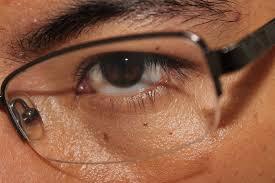
Are you finding it hard to focus at night or in dimly lit rooms? Is it difficult for you to locate objects in low-light areas, recognize faces in partially dark places or drive after sunset despite wearing prescription glasses or contact lenses? You may need to consult your eye care specialist to check for night blindness or Nyctalopia. Here’s more on what it is, how it’s caused and treatment options.
Causes of Night Blindness
Night blindness is a condition where you have a cloudy vision when the focus is on objects at a distance. In many cases, it arises from vitamin A deficiency that strains the nerves and prevents them from converting impulses into images in the light-sensitive retina.
Night blindness can also arise from complications in eye-related conditions, such as Near-Sightedness, Cataracts, Glaucoma, Diabetes, Keratoconus or Retinitis Pigmentosa (dark pigments in the retina that lead to tunnel vision). It often affects seniors more. However, the condition can also be a birth defect or a genetic disorder called Usher Syndrome. Symptoms can range from headaches, eye strain, cloudy vision, light sensitivity, to difficulty in focusing or nausea.
Treatment of Night Blindness
After a thorough examination, you may be prescribed glasses or contact lenses for myopia or given medication to adapt to low-light conditions. In the case of cataracts, surgery may be recommended after which you may be fitted with artificial lenses.
For children and patients diagnosed with vitamin A deficiency, a balanced diet is recommended to minimize eye strain and strengthen focus. You will be advised to include more vitamin A in your diets, such as eggs, red, orange and yellow fruits and vegetables, such as pumpkins, peppers, oranges and mangoes, fish oil such as cod liver oil, leafy green vegetables, milk and fortified cereals.
A personalized treatment plan will be customized for you but exact treatments differ from patient to patient, depending on the cause and intensity of the condition after assessment by the eye specialist.
In some cases, night blindness is not effectively treatable, such as in patients with Retinitis Pigmentosa. In these cases, precautions may be advised to make navigation easier, such as reducing movement and limiting night driving.
Eyeview Optical Waterloo
If you suffer from night blindness and need to change your prescription glasses or contact lenses, visit us at Eyeview Optical. We cater to all-optical needs from prescription eyewear, all kinds of contact lenses, sportswear with UV ray protection and safety glasses. We also include adjustments, repairs, tinting and bleaching.
Our eye care centre in Waterloo has an on-site highly qualified optometrist for eye-check assessments to diagnose conditions. We deal directly with insurance companies, Veteran Affairs, Welfare Canada and others. Call us to schedule an appointment.